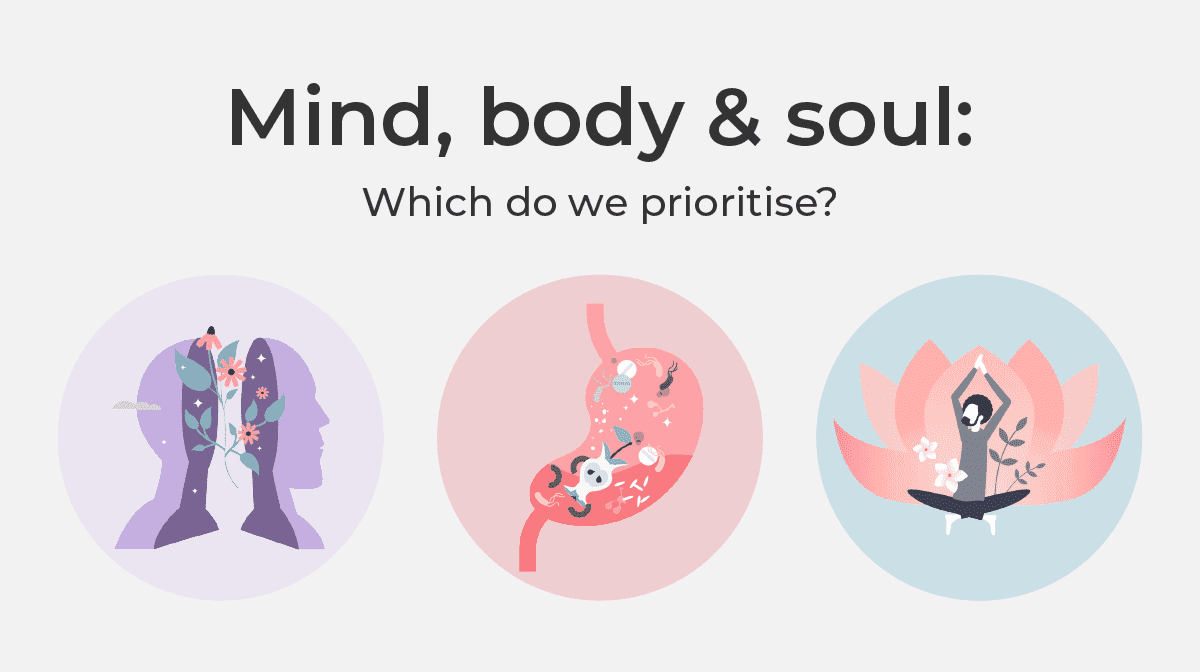
Starting a new habit is the easy part - sticking to it once the initial excitement has worn off is the hard part, which is usually after a few days (remember those New Year’s resolutions that don’t make it to the end of January?).
When making lifestyle changes to improve your gut health, it can sometimes take many weeks to notice a difference. It can often feel like the changes aren’t working, so the habit is given up on.
10 habit-forming tricks
To help you keep on track with improving your gut health, we’ve compiled the 10 most common tricks you can use to help you form new habits:
1. Commit to 21 daysThis is the recommended minimum time you need to repeat a habit before it starts to feel ‘normal’1. Some habits may take longer to adopt, depending on how difficult they are or how new they are to you, but by committing to the first three weeks you should hopefully find it easier to carry on.

Trying to change too many things in one go or doing something completely new will make it harder to stick to. A simple change to improve your gut health could be drinking one extra glass of water a day to make sure you stay hydrated. Or if you want to change your diet, just make one or two changes first so it doesn’t feel overwhelming.
3. Do it every dayConsistency is the key. The best way to keep up the momentum of a new habit is to do it every day. Doing it only once or twice a week makes it more difficult to stick to. Doing exercise can help keep your gut healthy, so you may benefit from going for a walk each day.
4. Remind yourselfYou may think that you’ll automatically remember to do your new habit, but before it becomes ‘normal’ you could easily forget about it. Put a note on the fridge, a reminder on your phone or leave things out in obvious places (like next to your car keys) so you're reminded.

Once motivation starts to slip in the early days, there will be many things that could trip you up. If your habit is to eat less processed foods, then leaving them in the cupboard is only going to tempt you when you have a dip in motivation. The best thing to do is to remove the food before you get started and swap it for a healthy alternative. That way, when you get a craving there will be nothing there to tempt you.
6. Get a habit buddyAsk someone to be your buddy; perhaps someone who can make the change with you or keep you motivated when you’re finding it difficult to stick to it. Get them to hold you to account so you keep going even when you feel like stopping.

Research by Dr Gail Matthews2 shows that you’re 64% more likely to achieve a goal if you write it down and share it with a friend. She found that by writing things down tells your brain that you’re serious about making it happen.
8. Schedule time for your habitHaving a clear time in the day for doing your habit will mean there’s less chance of something getting in the way and pushing you off track. Figure out how long it’ll take to complete and make sure you plan in enough time - whether that’s five minutes or an hour.

If everything else remains unchanged around you then it’s easy to slip back to your old ways. Make small changes around you to act as a trigger for completing the new habit. For example, leave your packed gym bag by the door so it’s easier to get to the gym or leave a book on your nightstand to remind you to read a few pages to help you get to sleep easier.
10. Track your habitsKeep a diary of when you complete your habit. It could be as simple as putting a tick on a piece of paper. As you see those ticks mounting up, you’ll see how much you have achieved and this will motivate you to keep going. After all, you don’t want to undo all the hard work you’ve already done.
Remember that creating a new habit isn’t easy and you will have days where you miss it. But don’t consider it as failing, just pick the habit back up as soon as you can and carry on. Always keep your end goal in mind - as long as you stay focussed then you’ve got a better chance of achieving what you set out to do.
Sources
Maltz, M., 1960. Psycho-cybernetics. New York: Pocket Books.
Matthews, G., 2021. Strategies for achieving goals. [ebook] California: Goalband, p.2. Available at: <http://www.goalband.co.uk/uploads/1/0/6/5/10653372/strategies_for_achieving_goals_gail_matthews_dominican_university_of_california.pdf>.

Discover More On Healthy Habits

The importance of forming good habits
We are the sum of our habits and you can only reach your goals with good habits. Learn more in our blog about how to build healthy habits and why they are so important.

Mind, body and soul: Which do we prioritise?
Taking care of your physical, mental and even your spiritual wellbeing is important for holistic health. But as a nation, what are our attitudes towards these aspects of health and how do we prioritise them?
Shop Zenflore
Discover Brain Supplements and Bundles









